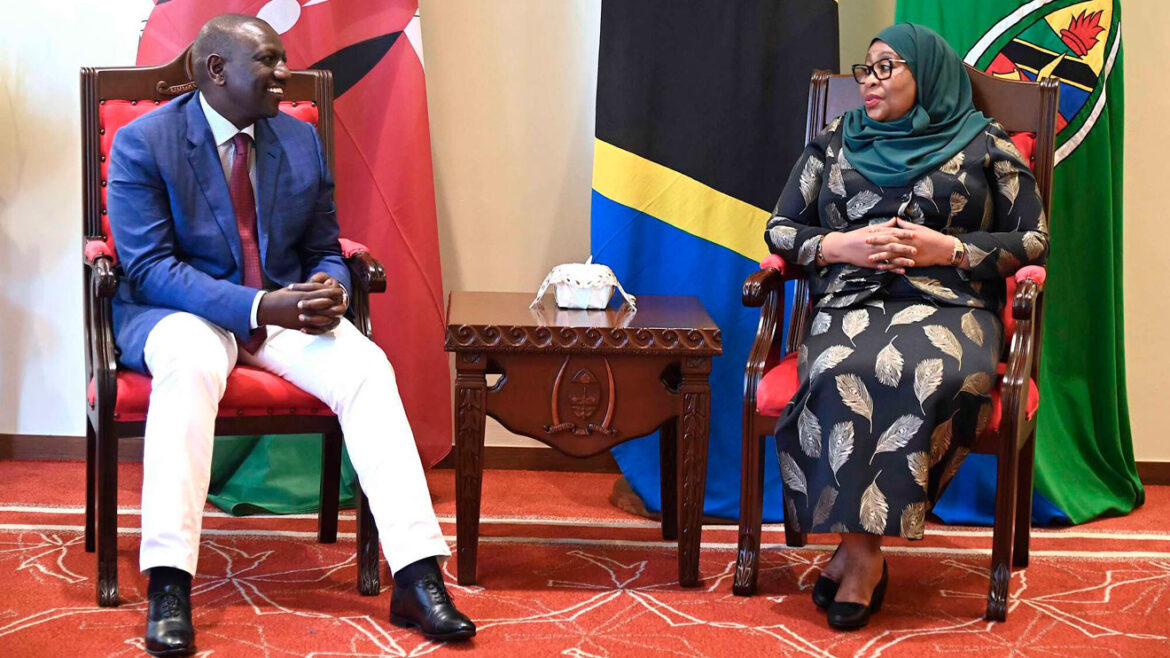Kenya has launched diplomatic efforts to address Tanzania’s recent restrictions on foreign businesses, which have sparked tensions within the East African Community (EAC). The move follows Tanzania’s Business Licensing (Prohibition of Business Activities for Non-Citizens)
Order 2025, gazetted on July 28, bars non-citizens from operating in 15 small-scale business sectors, including mobile money transfers, retail, salons, and tour guiding. The directive has raised concerns about its impact on regional trade and Kenyan livelihoods in Tanzania.
On Thursday, August 7, 2025, Kenya’s Foreign and Diaspora Affairs Cabinet Secretary Musalia Mudavadi appeared before the National Assembly’s Committee on Regional Integration in Nairobi, emphasising diplomacy over retaliation.
“My appeal is that we pursue the diplomatic angle. The Ministry will have a bilateral diplomatic engagement with Tanzania to resolve the matter for the benefit of Kenyans currently operating businesses in Tanzania,” Mudavadi stated, cautioning against xenophobic sentiments that could escalate tensions.
He added, “If diplomacy fails, I will declare and say we use a different method, so let us allow it to work.”
The Tanzanian order, enacted under the Business Licensing Act (Cap. 101), prohibits non-citizens from engaging in mobile phone repairs, small-scale mining, and real estate brokering activities.
Violators face fines up to TSh10 million (approximately Sh503,136), six months in prison, or visa revocation. Tanzanian citizens aiding foreigners in these sectors could also face penalties. The policy, aimed at prioritising local entrepreneurs, has been criticised for violating the EAC Common Market Protocol of 2010, which promotes free movement of goods, services, and labour across member states.
Kenya’s Trade Cabinet Secretary Lee Kinyanjui warned that the restrictions could harm both economies and hinted at possible sanctions as a last resort.
“The Business Licensing Order, which seems to be criminalising lawful EAC investments, will hurt both our economies. It is critical, in the spirit of EAC, that bilateral engagements be held to resolve these issues,” Kinyanjui said.
Kenya has formally notified the EAC Secretariat, calling for a regional meeting to address these non-tariff barriers.
The dispute affects an estimated 40,000 Kenyans living and working in Tanzania, many in informal sectors targeted by the ban. Businesses with valid licenses can operate until their permits expire, but losses could reach Sh19 million if the order is not revoked.
Mudavadi urged Tanzania to waive business pass fees and extend permit durations for Kenyans, aligning with reciprocal policies in Kenya for EAC nationals.
Tanzania’s move comes ahead of its October 2025 general elections, with analysts suggesting it reflects populist measures to boost local employment amid domestic pressure. However, critics, including Kenya’s EAC Principal Secretary Caroline Karugu, argue it undermines regional integration.
“Tanzania’s move risks undermining regional economic integration efforts under the EAC,” Karugu stated.
As chair of the EAC Summit, President William Ruto has engaged directly with Tanzanian President Samia Suluhu Hassan to seek a resolution. The issue is set for discussion at a Joint Trade Committee meeting on August 11-12 in Arusha, following a technical meeting on the tobacco trade.
The trade dispute adds to a history of tensions between Kenya and Tanzania, despite a 2021 Memorandum of Understanding to resolve non-tariff barriers. Experts warn that failure to resolve the issue could prompt retaliatory measures, further straining EAC cooperation and cross-border trade, which accounted for Sh63 billion between Kenya and Tanzania in 2024.
As diplomatic talks proceed, the outcome will shape Kenya-Tanzania relations and the broader EAC’s commitment to regional economic unity.



